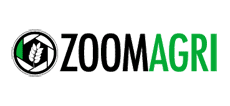The Argentinian company develops quality assessment technology designed for agricultural raw materials and all participants in the supply chain, using image processing, AI and IoT. Initially focusing on barley, they are close to applying their method to soybeans, wheat and corn and there are many other raw materials to follow.
It has a global team operating from South America, Europe and Australia, with extensive experience in trading, technology and agricultural science. It aims to consolidate and expand its operations in Spanish industry and to launch new products in the coming years.
How did the idea for this project come up?
ZoomAgri aims to transform Testing, Inspection & Certification (TIC) in agri-food supply chains, a huge industry that is often underestimated. The total value of the agri-food TIC market is $23 billion per year. However, quality assessment is at the core of TIC, and this has not changed in the past 100 years. As of today, this process is basically a manual process, which has several associated problems, such as physical limitations, delays in the results, fraud, subjectivity and very high costs, regardless of whether the process is carried out internally or externally.
3,000 million tons of cereals and oilseeds are produced worldwide every year. The quality analysis is conducted across the entire supply chain. This is an essential process, since it not only determines the final prices of the goods, but also the quality and efficiency of the associated industrial processes.
ZoomAgri combines different technologies, such as Computer Vision, Machine Learning and Artificial Intelligence, and provides solutions to the difficulties encountered by our customers and the industry in general. Our customers receive a software solution integrated into a device that is installed at their premises, which provides an accurate and cost-effective analysis, with real-time results.
What are the main features of ZoomBarley, your leading product?
It has been very important for the beer and malt industry, as barley is converted into malt through a germination process. Barley needs to be homogeneous and from the same variety to achieve this, because each variety reacts differently to the germination process. Contracts often have a minimum sanctity of 93% or 95%, but the industry lacked a fast, accurate, and economical method to determine this.
With ZoomAgri, we have trained our patented algorithms with millions of images, ranging from 80 to 90 million images and our customers can currently analyse their varietal purity in only 3 minutes at the reception area and at a fraction of the cost of traditional methods, such as DNA or electrophoresis, the results of which can take up to several days or weeks. We save 99% of the time and reduce the cost by 85%.
When did you start operating in Spain and how has the expansion process unfolded?
Officially, ZoomAgri started operating in Spain in February 2019, after several months of in-depth market research. We launched our first ZoomBarley product at the end of 2018 in Argentina, and because of the huge success there we decided to bring it to Europe and to the rest of the world. Today, ZoomBarley is present in 18 countries across several continents, and we are working with most of the world's leading barley and malt companies for beer production. These 18 countries are: Spain, France, Belgium, Holland, Germany, Denmark, Poland, Ukraine, Kazakhstan, Australia, India, Uganda, South Africa, Turkey, United States, Brazil, Uruguay and Argentina. We will soon expand to Mexico, the United Kingdom and several other countries.
Our next ZoomSpex product has already been installed at the facilities of several customers in Argentina and we will soon be installing it at our European customers' facilities. With ZoomSpex, we have solved 2 very important problems for quality assessment of barley for brewing: assessing the physical quality, which is currently done manually, and classification by size, which is currently done with bulky and slow machinery.
In addition to barley, we are close to launching ZoomSpex for soybeans, wheat, corn and many other raw materials to follow.
How would you define the business model in Spain and who are your main customers?
In addition to innovating in technology, we have also innovated in our business model. It is a very disruptive model, which we call "Vision as a Service" and it is not only implemented in Spain, but across the world. We do not charge anything for the devices and only charge for the tests conducted.
ZoomBarley's main customers come from the brewing industry, such as breweries, malt companies, stockmakers, quality control companies, export companies and nurseries.
With ZoomSpex, we focus on these customers and on the agricultural industry, where not only barley for brewing, but also other raw materials are handled. In Spain, we also see other important crops, such as wheat, corn and feed barley, but there is also a huge potential for table grapes, peanuts or pistachio.
What are the company's expansion plans in the Spanish market?
We see an endless number of opportunities. We rolled out our first campaign in Spain in 2020, in the middle of the pandemic. We still need to expand much more organically in the industry, attracting customers from many different places.
Second, we are ready to develop a new product that could be very useful for the Spanish beer market in particular, and which would allow us to consolidate a more vertical position in the supply chain. At the end of the day, we are going to bring different solutions to our customers, what we call "Layer-by-layer".
Third, we also see a huge potential in launching new products in Spain, such as ZoomSpex for physical assessment of raw materials.
Last but not least, in some of the 18 countries in which we are present we have been contacted by different authorities for several different reasons to turn our method into an industry standard. I believe that it is very positive to work hand-in-hand with the Spanish supply chain to achieve what we have been working on in these other countries, with the aim of creating a more sustainable, traceable and transparent country, which will allow us to create higher quality products.
You have revolutionised the brewing industry. In what other industries do you hope to be present?
As I mentioned before, we see a huge potential in raw materials for animal feed or in barley, wheat, and corn production, but there are also many other traditional Spanish sectors, and we also wish to focus more on other types of food to continue expanding our services, such as grapes, peanuts, peas and pistachio, just to name a few.
Another industry we are analysing is the pasta and bread industry. We have developed a technology to classify different wheat varieties, after detecting that some pasta factories have shown a lot of interest in certain varieties. Another solution we have developed distinguishes between durum or white wheat (pasta) and common wheat (bread). In some countries, such as Spain, France, Germany and Greece, the laws only allow a 3% content of common wheat in durum wheat. ZoomAgri will help you achieve this in an objective, fast and cost-effective way!



